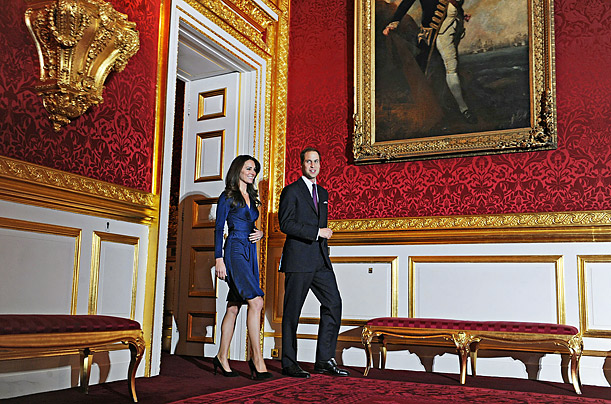
From the Nov. 29, 2010 issue of TIME Magazine
Say this for the British: they know how to play to type. When they heard the news that Kate Middleton and Prince William, second in line to the throne, are to wed next year, the Cabinet of Prime Minister David Cameron broke into cheers and banged on the table. The BBC went into full-on royal coverage, and jewelers reported soaring demand for copies of Middleton's engagement ring, the same one William's mother Diana, Princess of Wales, had once worn. The betrothed couple are just as they should be, perfect specimens of the wealthy modern Brit (good bones, history of art at St. Andrews, vacations in Kenya). Some in the ink-stained chapter of Britain's chattering classes played their part too, harrumphing about the anachronistic excess of a royal wedding at a time of national austerity. But if history is a guide, few will begrudge the young pair their moment. In 1981, when Diana married William's father, Britain's mood was not austere; it was bitter and angry. The brief joy of the wedding that year endowed Diana with an aura of popularity she kept until the day she died. Not everyone loves a royal, but everyone loves being lifted from quotidian gloom.